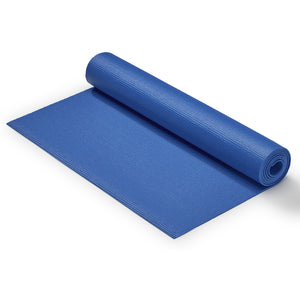No matter what new diet or fasting protocol comes along, breakfast seems to still have a hold on the “most important meal” title. A few reasons for this include the fact that when you eat breakfast after long hours of fasting during the night, your metabolism gets a boost. Your metabolism is your internal engine that breaks down your food and converts it into useable energy. When your metabolism is low, you may not feel like you have as much energy to meet the physical and mental demands of the day. Another benefit of a strong metabolism is that your body will be able to burn more calories throughout the day. When you skip breakfast, your body receives a message to hold onto energy stores as a protective mechanism against starvation.
1. Nutrients Are Key
If you are considering skipping breakfast to lower your calorie intake or are trying a new fasting protocol, you need to consider that when you reduce the number of meals throughout the day, you are reducing your body's opportunity to receive vital nutrients. So if you find yourself trying to skip breakfast to shed a few pounds, you may need to pay careful attention to your nutrient ingestion throughout the rest of the day. Consuming enough vitamins, minerals, fiber, and macronutrients should be the primary focus when calorie restriction is caused by lack of a nutritious morning meal.
2. Don’t Let Your Brain Down
Breakfast also plays a critical role in blood sugar regulation. When blood sugar drops too low or reaches high levels, insulin resistance can develop. If this happens, your risk for developing diabetes rises. Blood sugar drops from lack of food. This can easily be recognized if you are someone who experiences mood changes after not eating for a long period of time. Not only will your mood be affected, you may experience an over lack of brain functioning that could affect everything from your productivity to your memory.
3. Crush Your Workouts
Many people may feel greater effects from skipping breakfast if they are trying to get their workouts in as well. When you increase the physical demands of your body, your need for fuel increases as well. This is especially important if you plan on performing high intensity workouts. Fatigue and drops in performance can happen if your body is lacking adequate amounts of energy to get you through your workout. The best strategy for morning exercisers would be to have a light meal that is easy to digest before you start your workout. If possible, you should give your body at minimum 30 minutes to digest something small. If you plan on having a large meal, then it would be wise to wait at least a couple hours before your workout.
Sample Breakfast Meals
It’s important to choose food items that you know your stomach will have an easy time digesting. If you are not sure how your body will respond eating different items of food prior to your morning workouts, you may have to resort to trial-and-error before you find what works best.
Quick and Light – My workout starts in less than an hour!
- Fruit and Low-Fat Yogurt
- Protein Bar
- Whole-grain cereal or bread
A balanced meal – I got a couple hours.
- Fruit and Protein smoothie
- A cup of oatmeal with fruit and nuts
- Nut butter and fruit jelly on whole-grain bread
Breakfast of Champions – Workout starts in more than 2 hours.
- Omelet with lean protein and vegetables, side of whole grain toast, and fruit
- Egg sandwich with lean protein and avocado
- Lean protein with sweet potato hash and grilled vegetables
Doing Breakfast Right
If you want to perform your best throughout the day and not suffer through your morning workouts, breakfast should be a staple in your morning routine. If you’re not looking to dominate a high intensity interval training program at 6am before work, you should still make breakfast a priority to avoid the potential negative healthy effects of skipping breakfast. When deciding what to eat, take your workout time into consideration. It’s important to leave room for your food to digest prior to physical activity. Remember to always eat a balanced meal that include nutrition dense foods and a balanced amount of protein, carbs, and healthy fats.

























Add Your Name & Email
Please enter your name and email to continue.We won’t display your email publicly.